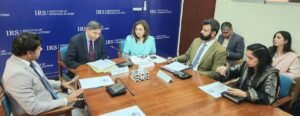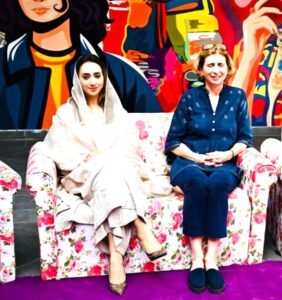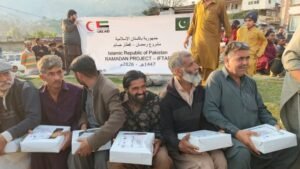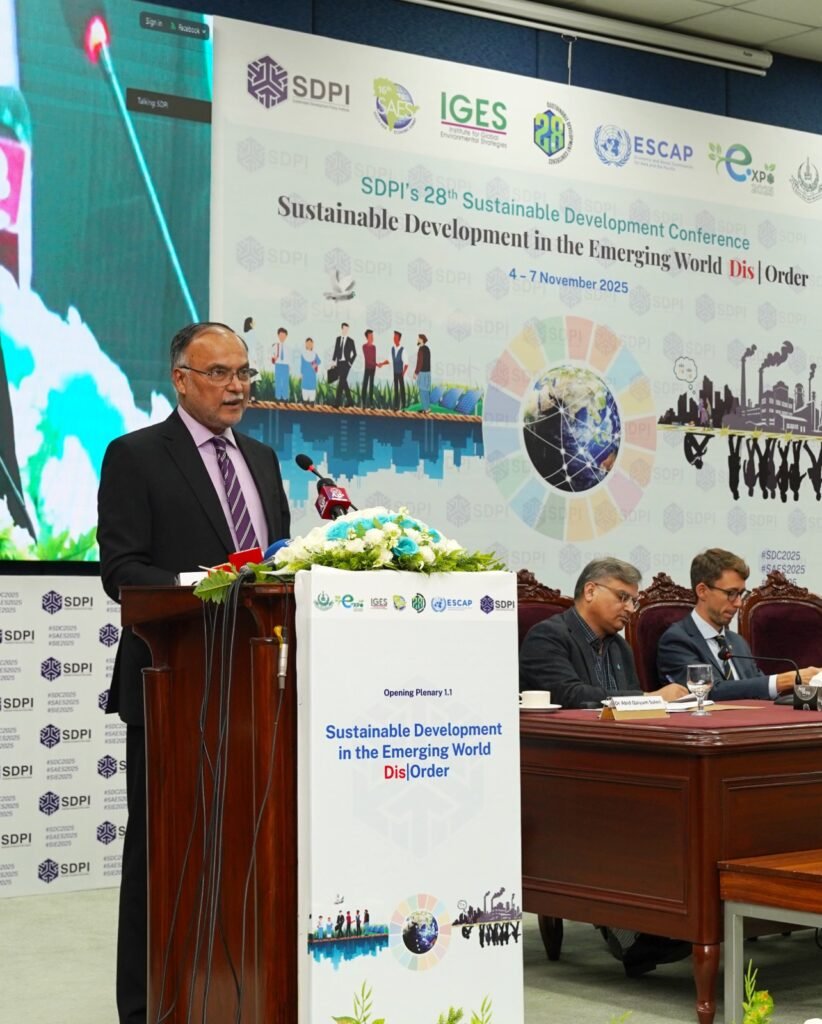
South Asian leaders for bold transformation, achieving SDGs amid global uncertainty
ISLAMABAD : Federal Minister for Planning, Development and Special Initiatives Prof. Ahsan Iqbal has said that Pakistan must harness innovation, inclusivity and integrity to navigate rising global instability and shape a new development world order. The minister underscored that Pakistan’s contribution to global carbon emissions is negligible, yet the country remains severely vulnerable to the impacts of climate change. He said climate shocks continue to erode economic stability and development gains.
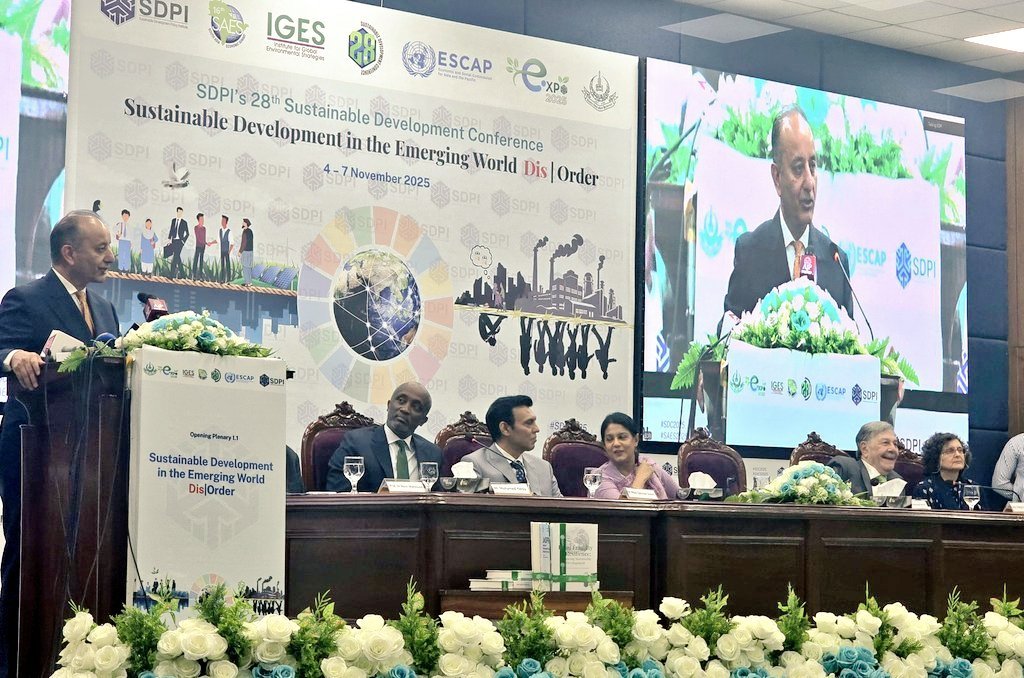
Bangladesh’s Advisor to the Ministry of Environment, Forest, and Climate Change Syeda Rizwana Hasan echoed the concerns, warning that multilateralism is “losing ground” amid growing political unrest in South Asia. She said worsening natural disasters, soil degradation, and regional disputes — particularly between upper and lower riparian nations — threaten millions of lives. “Pakistan has seen actions by upper riparian that violate international law,” she noted.
SDPI Executive Director Dr Abid Qaiyum Suleri said: the conference serves the region’s intellectual purpose where research meets policy, ideas meet responsibility, and optimism meets realism.
Today, uncertainty has prevailed across every front. “The familiar pillars of progress such as trade integration, multilateralism, and predictable growth are weakening. Geopolitical alignments are shifting faster than our institutions can adapt. Climate extremes have become more frequent, costly, and political.”
SDPI Chairperson of Board of Governors Ambassador Shafqat Kakakhel said complex threats to peace, prosperity, and human well-being — such as the impacts of climate change — have grown exponentially, even as our collective will to counter them has receded.
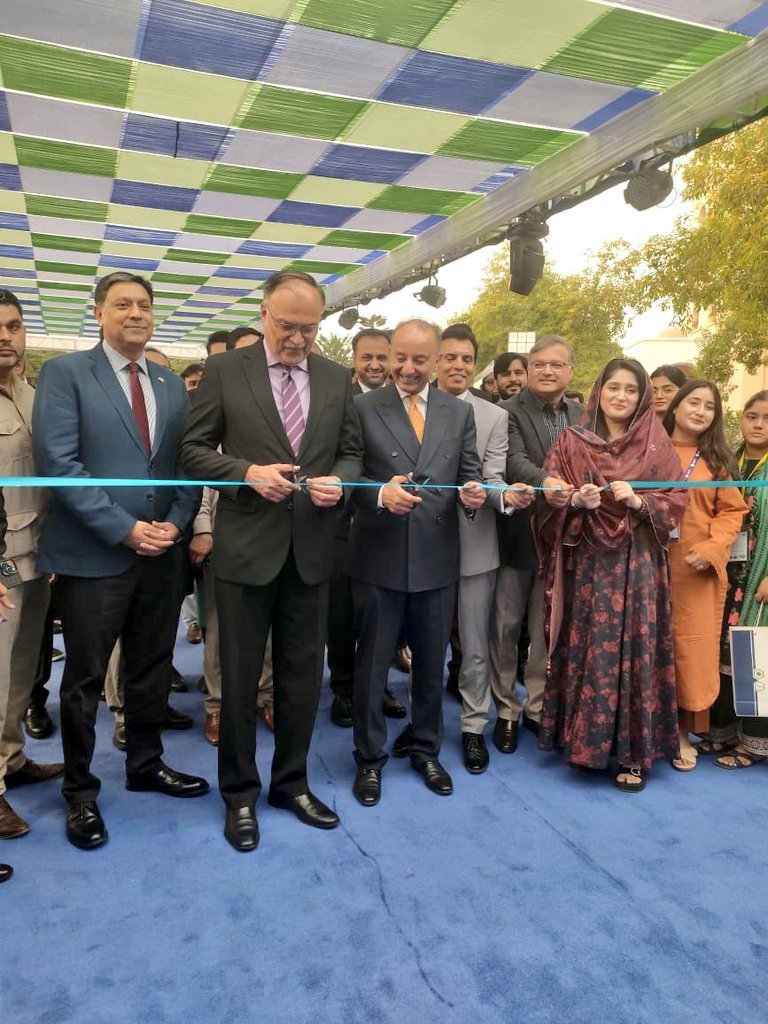
Mohamed Yahya, UN Resident Coordinator and humanitarian coordinator, Pakistan said that “The era of small projects is over” adding, “We can support governments technically, but we cannot replace them.”
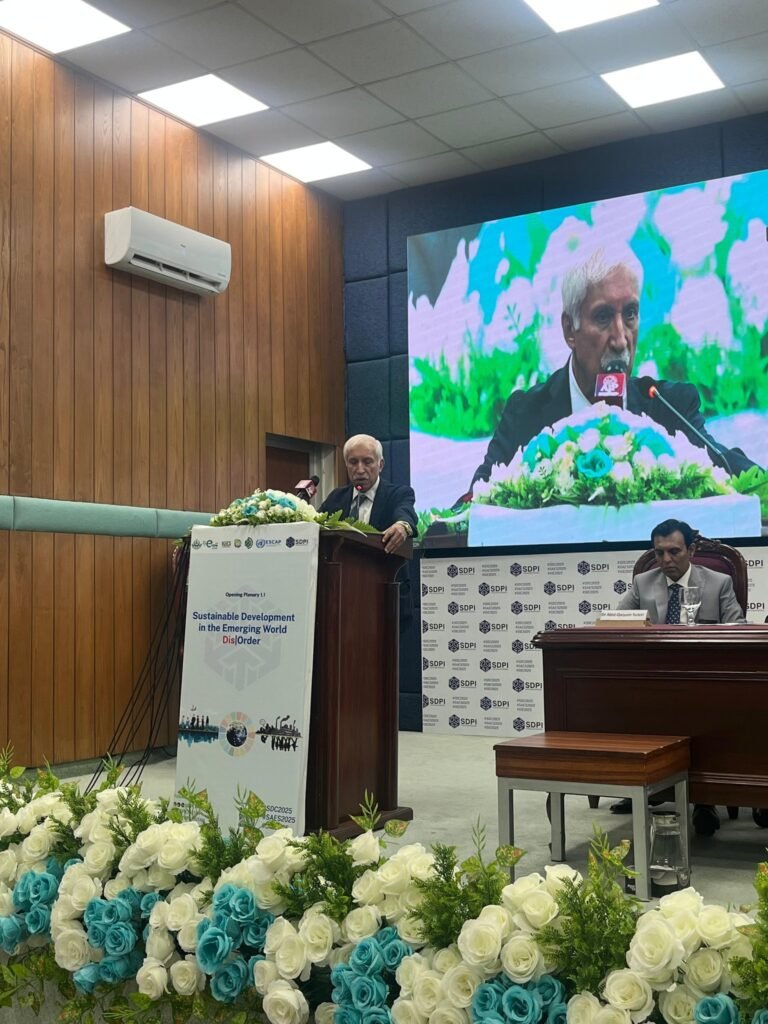
The Chairman of Board of Investment, Qaiser Ahmed Sheikh, stressed that value-addition and export-led growth remain the only sustainable path to lift millions out of poverty and push Pakistan towards its target of becoming a $1 trillion economy by 2035.
The minister said that nations attracting robust foreign direct investment (FDI) and strengthening export-driven sectors had successfully achieved sustainable growth and overcome poverty traps.
SDPI Executive Director Dr Abid Qaiyum Suleri emphasized that sustainability is no longer a choice but an imperative for Pakistan’s long-term survival regarding socio-economic stability. He called for deeper collaboration among all stakeholders to build a climate-resilient and economically secure future.
Peter Emil Nielsen, Deputy Head of Mission at the Embassy of Denmark, said the climate crisis is now a lived reality and demands urgent, coordinated action.
Nielsen said the expo provides a critical platform that brings together investors, innovators, policymakers and youth to shape a climate-smart future
Deputy Head of Mission at the German Embassy, Arno Kirchhof said Pakistan must move beyond simply fighting climate change and instead embrace a comprehensive shift toward sustainable, environment-friendly economic growth.
Later, experts from South Asia at a strategic dialogue, ‘Accelerating SDGs in the World Today- Challenges and Opportunities’, called upon the governments to shift from business-as-usual approaches to genuine transformation, stronger cooperation, and inclusive governance.
UNESCAP Director Mikiko Tanaka, highlighted the global preoccupation with “order”, questioning what the concept truly means in a world struggling to deliver on the SDGs.
Tanaka noted that development financing is declining both internationally and domestically, calling for better integration of energy, water and mobility needs within national frameworks.
Permanent Representative to UNESCAP Faiyaz Murshid Kazi of Bangladesh noted that crises can also bring opportunities for rebuilding. Drawing parallels to the post–World War eras, he said, “If our forefathers could create an order that lasted 80 years, why can’t our young minds create another one?”
He noted Bangladesh’s efforts to institutionalize SDG coordination through a central government office that mobilises all agencies under a unified agenda. The country’s voluntary review was described as “refreshingly honest”, highlighting both progress and gaps.
Prathma Uprety from SAARC Secretariat underlined that many development challenges in South Asia are cross-border in nature and cannot be tackled by any single nation alone. She called for strengthening the SAARC Energy Centre, regional early warning systems, and cross-border climate resilience mechanisms.
Mr Daya Sagar Shrestha, Executive Director, National Campaign for Sustainable Development, warned that progress on SDGs 10 (Reduced Inequalities), 12 (Responsible Consumption and Production), and 13 (Climate Action) was regressing in several countries. Nonetheless, he credited CSOs with localizing SDG action, collecting data, and amplifying marginalized voices.
Representing youth voices, Mr Danish Tariq spoke on the systemic barriers such as limited access to policymaking and underfunding of youth-led initiatives. “Youth are not a demographic challenge,” he said. “We are the region’s greatest asset, if taken seriously.”
SDPI Deputy Director Dr Sajid Amin Javed acknowledged that “the current system is not delivering on its goals”, calling for a move from “accelerating SDGs” to “inclusively accelerating SDGs”.
From Sri Lanka, Dr Dushni Weerakoon reflected on financial challenges, noting that “during fiscal crises, countries divert resources from education and health”.
Joining online from Bangladesh, Dr Debapriya Bhattacharya shared that politicisation of governance at all levels undermines SDG progress. He also spoke on the risks of myopic policy making. (Consolidated)


